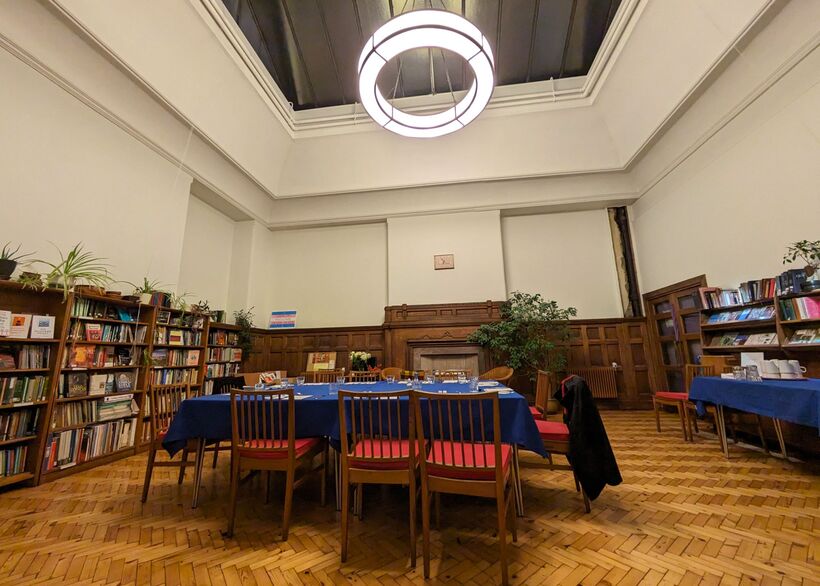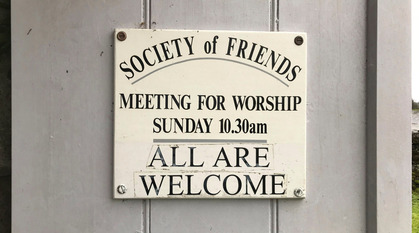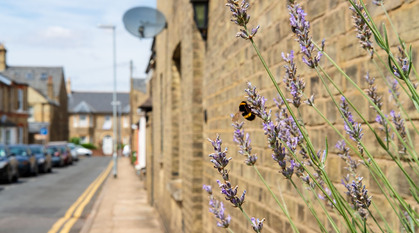Friends of the truth: bringing quiet diplomacy to Westminster
Quiet diplomacy has been used by Quakers at the United Nations for decades. Billy Vaughan reflects on using this practice at Westminster.

In her 2022 Salter Lecture, Ruth Cadbury said that “Truth and Integrity are absolutely core to how we live our lives, and Friends have long been recognised for these strengths by others."
At the heart of Quaker belief lies a deep and unwavering commitment to truth and integrity. It forms one of the central tenets of Quaker thinking, and stresses the importance of aligning actions with values, ensuring transparency and honesty in all encounters.
At Quakers in Britain, these principles have always guided our work within the public sphere, and in the last two years we have focused on promoting these values in public life.
Introducing quiet diplomacy
There has been a deepening crisis of truth, integrity and standards in British politics in recent years. This has led to increasing polarisation and record low levels of public trust in politicians. This presents a direct threat to democracy itself – our politics depend on the expectation that our representatives will act honestly and in our best interest.
The Quaker Truth and Integrity Group (QTIG) emerged out of this context, and its members raised awareness of these issues among Quakers. This led to a national decision by Quakers in 2022 that staff should work on truth and integrity in public life using Quaker methods.
At its core, the method of 'quiet diplomacy' seeks to put Quaker values into practice for the greater good – seeking truth through collective discernment and respectful dialogue. It was developed by the Quaker United Nations Office in Geneva over 70 years ago as a way of “asking probing questions in an atmosphere of trust".
Quiet diplomacy offers something different to normal lobbying. It is an approach centred on listening deeply, speaking truthfully, and finding a common way forward. Working alongside QTIG, our public affairs team have spent over two years building our truth and integrity project, harnessing the power of our principles to foster meaningful dialogue and affect positive change in Westminster.
Laying the foundations of quiet diplomacy in Westminster
Throughout this year, me and my colleagues, Grace Da Costa and Oliver Robertson, have been building the groundwork for a successful launch of quiet diplomacy in Westminster. We have met with MPs and Peers from all major parties, as well as officials, academics, and other organisations with an interest in truth and integrity. We were gauging interest for the specific kind of engagement that quiet diplomacy entails.
We knew that our task would not be easy; this was very much an experimental approach. While quiet diplomacy has been successful in the diplomatic sphere, we were unsure what the results might be in the more party-political environment of Westminster. We also developed most of our contacts from scratch, and unlike our UN colleagues we don't have an established reputation of hosting quiet diplomacy events.
We were pleased to learn from our initial outreach that there was indeed an appetite for the kind of space that quiet diplomacy offers. Parliamentarians told us that in the hectic and politically charged atmosphere of Westminster, it was often difficult to have meaningful conversations with colleagues outside their bubble.
Our quiet diplomacy dinner
The culmination of this preparation work has been the first quiet diplomacy dinner for members of parliament, which was held earlier this month.
It was an evening immersed in the spirit of Quaker values, where the ethos of quiet reflection and honest dialogue took centre stage. The aim was not to merely discuss policies or debate partisan perspectives, but also to build truly personal connections grounded in mutual respect and understanding.
In our work with parliamentarians, we start from the belief that everyone holds inherent worth, and that decisions affecting society should be made through a process that honours each individual voice. The quiet diplomacy dinner provided a sanctuary for open and honest conversations – a space where differing opinions were welcomed, but also where common ground was sought.
Feedback has been positive following the event. Attendees found it productive, and several suggested that other parliamentary colleagues could benefit from these kinds of events in the future.
Looking ahead to next year
As we reflect on this event and our broader work within parliament, it is important that the Quaker values of truth and integrity serve as guiding principles for the project. These principles, along with the mandate provided to us by Yearly Meeting, empower us to engage in this quiet diplomacy work, fostering dialogue and understanding, even in the face of differing opinions.
Going into the new year, we hope to build on the strong foundations that our work has already provided, and expand our network of parliamentarians who want to engage with us and each other to help improve standards of truth and integrity.
Through this project, we will continue to strive for a parliament where respectful dialogue paves the way for truth, integrity and positive change.


